- Home
- entertainment
- news
- I've lived in Scotland my entire life. Here are 6 traditions I grew up with that my American friends find surprising.
I've lived in Scotland my entire life. Here are 6 traditions I grew up with that my American friends find surprising.
Mikhaila Friel

- I was born in Glasgow, Scotland, and have lived there for most of my life.
- After spending time in the US and England, I learned Scottish traditions weren't considered typical.
I've lived in Scotland, UK, for almost my entire life.
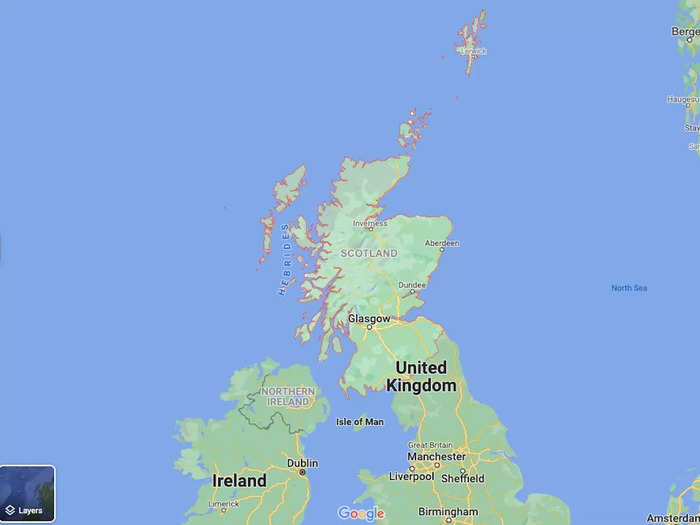
I was born in Scotland, a small country in the United Kingdom with about 5.4 million residents, according to the National Records of Scotland.
While Scotland is part of the UK, there are traditions that I grew up with that aren't celebrated by the rest of the nation — or the world.
I've lived in the country for most of my life, except for a short study-abroad semester in Pennsylvania in 2016, and over the past few years, I have spent time in London for work.
It was only when I made friends who weren't from Scotland — particularly my US friends — that I realized just how unique some of our traditions were.
Every January, we celebrate Burns Night in honor of the famous poet Robert Burns.
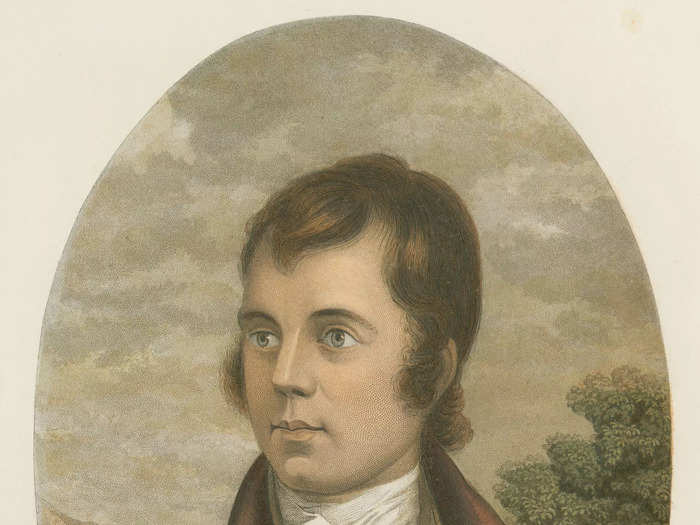
Burns Night falls on January 25 every year in honor of Robert Burns, or "Rabbie Burns," as he's known in Scotland.
Burns was an 18th-century poet from Dumfries and is considered the country's national poet. He's best known for writing the lyrics to "Auld Lang Syne," a song often performed on New Year's Eve in Scotland and in other countries.
When I was in elementary school, our teachers used Burns Night to teach us about poetry. I remember performing in "The Burns Factor," a competition in which we had to recite our favorite Burns poem by memory.
On Burns Night, we eat a traditional Scottish meal known as "Burns Supper."
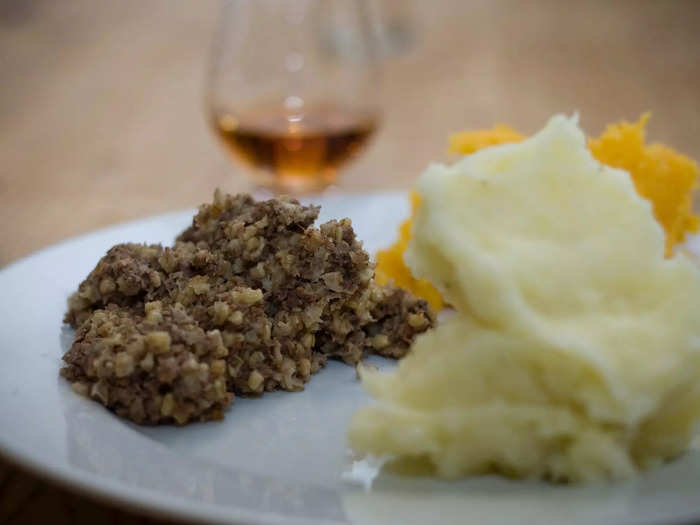
On Burns Night, many families across Scotland enjoy a "Burns Supper" for their dinner.
A Burns Supper consists of haggis (spiced meat encased in animal intestines), neeps (turnips), and tatties (potatoes). While it's most popular on Burns Night, my family eats haggis several times a year, and it can usually be found served at restaurants any time of the year.
Some people might also choose to have a Burns Supper on St. Andrew's Day, Scotland's national day, which falls on November 30 every year.
Traditional haggis has been banned in the US since 1971 because the recipe includes sheep lung. But you can get a vegetarian version of it in some stores, according to iNews, as well as versions that omit the banned ingredient.
Men wear kilts at important celebrations, such as school proms, weddings, and graduations.
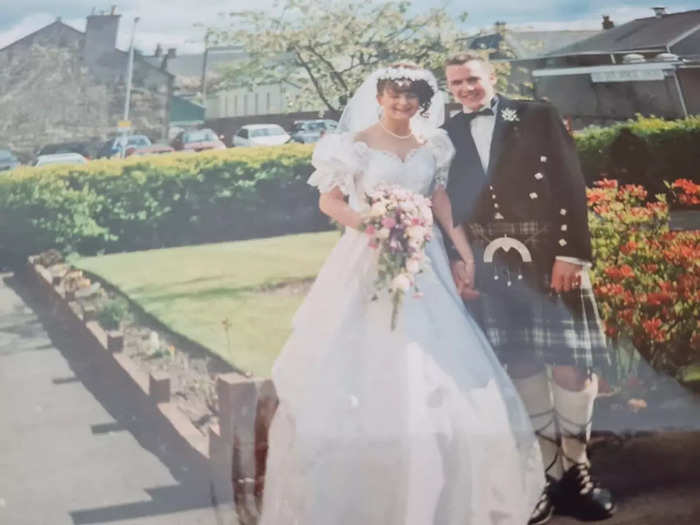
Kilts are a tartan skirt-type garment that originated in the Scottish Highlands in the 16th century, according to Lochcarron of Scotland.
It's not something men walk around in every day. Kilts are saved for special events, such as school proms, graduations, and weddings.
When I showed the above photo of my parents on their wedding day to some of my student friends in the US, they were surprised that my dad got married wearing a "skirt." But in Scotland, it's the norm.
At school dances, we don't dance to modern music. Instead, we have traditional Scottish dancing, known as ceilidhs.
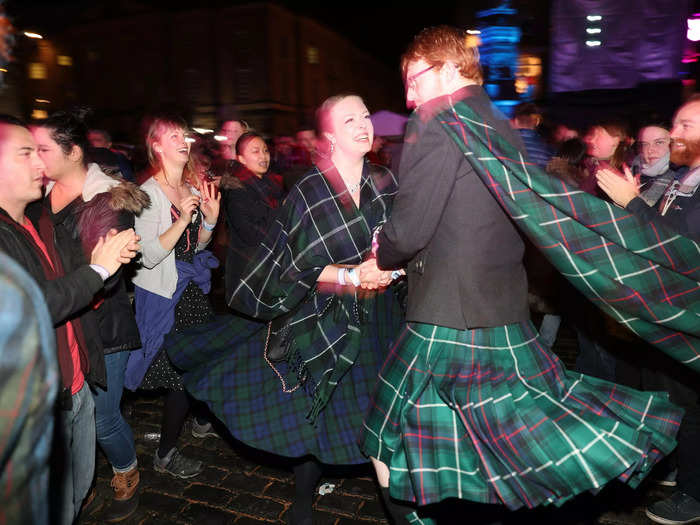
A ceilidh is a gathering that involves dancing to traditional folk music, either in partners or in groups, in choreographed routines, all of which have their own names. For example, one of the most popular routines is called the "Gay Gordons."
When I was growing up, our school threw a ceilidh every year before Christmas. For the full month of December, every gym class was dedicated to learning and practicing the different routines.
When I studied in the US, it had been years since I had been to a ceilidh — yet I still remembered every move of the "Gay Gordons" and (unsuccessfully) attempted to teach it to my roommates.
Bagpipes are played at important events.
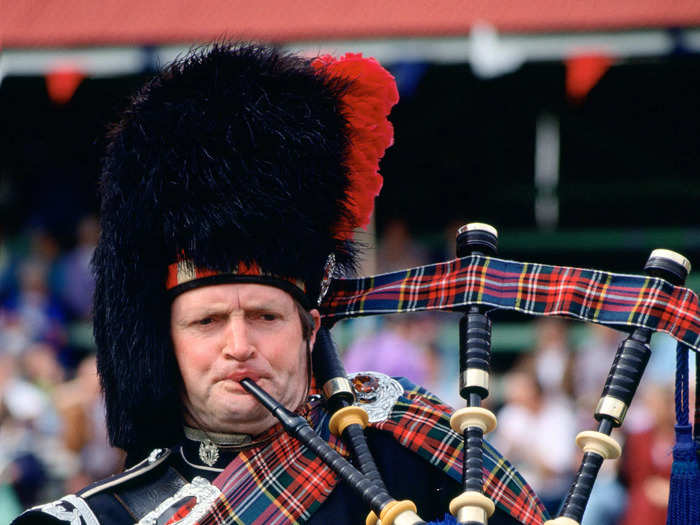
Bagpipes are played at a wide variety of events, including parades, weddings, funerals, and school assemblies. It's also common to see bagpipers busking on the streets of Glasgow and Edinburgh.
Bagpipe music is popular in Scotland, and there are several piper bands, including the Red Hot Chilli Pipers, that have made a name for themselves — despite the instrument's sometimes negative portrayal in pop culture.
New Year's Eve — known as Hogmanay in Scotland — involves several traditions.
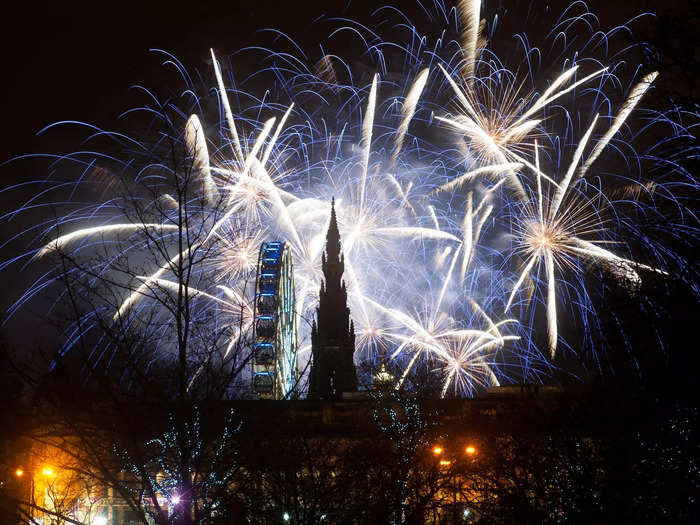
Hogmanay, the Scottish word for New Year's Eve, is believed to be linked to the French word "hoginane," which means "gala day," according to BBC Newsround. The publication added that the term was first used widely after the return of Mary, Queen of Scots, to Scotland from France in 1561.
The Hogmanay tradition I remember most vividly is called "first footing," which means being the first person to enter someone's house (usually a relative or a friend) after midnight for good luck.
Another tradition involves having steak pie on New Year's Day. But that's something I've done on only a handful of occasions.
Popular Right Now
Popular Keywords
Advertisement